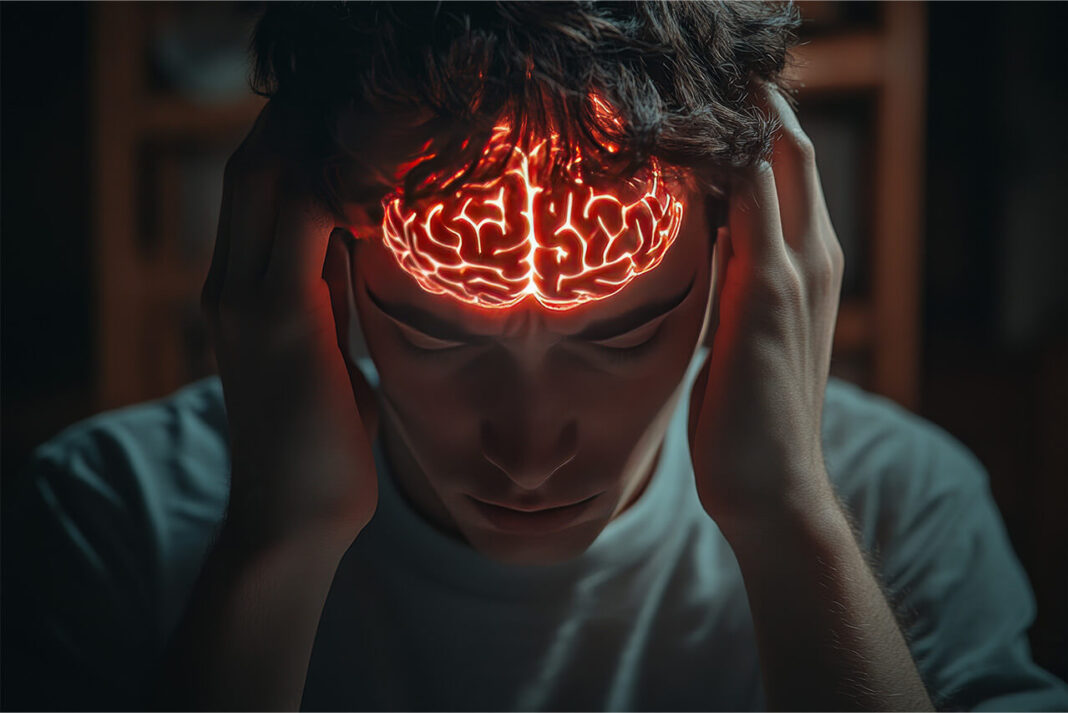Introduction
In today’s fast-paced world, stress is an unavoidable part of daily life, influencing both individuals and society at large. While many view stress as a temporary and manageable challenge, the long-term effects of chronic stress on the brain and mental health are far more profound and complex. In this article, we will explore the neurological effects of stress on the brain and examine how chronic stress impacts individuals’ mental well-being.
1. Effects of Stress on the Brain
The brain responds to stress from the very onset; however, the long-term effects of stress can be far more devastating. One of the key areas affected by stress is the limbic system, particularly the amygdala. The amygdala plays a central role in processing emotional responses, such as fear and threat perception. When this area becomes hyperactive, individuals may experience persistent anxiety and fear.
Chronic stress also negatively impacts the prefrontal cortex, a region of the brain responsible for emotional regulation, decision-making, and complex thinking. With prolonged stress, the functioning of the prefrontal cortex may decline, making it harder for individuals to cope with challenging situations. This undermines their ability to think logically and make sound decisions under pressure.
Another significant area affected by stress is the hippocampus, which is involved in memory and learning. Chronic stress can lead to shrinkage of the hippocampus, impairing cognitive functions such as memory retention and learning. Furthermore, weakened neuroplasticity—the brain’s ability to form new connections—limits the brain’s capacity to adapt, which can negatively affect both emotional and cognitive functions.
2. Structural Changes in the Brain Due to Chronic Stress
The structural changes caused by chronic stress manifest over time through long-lasting neurological alterations. The balance between the amygdala and prefrontal cortex becomes disrupted, especially in cases of chronic stress. Hyperactivity of the amygdala leads to heightened emotional reactions, while the reduced functioning of the prefrontal cortex makes it difficult for individuals to regulate their emotions effectively. This imbalance can result in increased emotional outbursts, such as anxiety, fear, and anger.
Additionally, chronic stress diminishes the brain’s neuroplastic capabilities. The repair and regeneration processes of nerve cells slow down, leading to impaired learning and memory abilities. Continuous high levels of cortisol—the primary stress hormone—further exacerbate this damage by harming brain cells, making it harder for the brain to recover and adapt.
3. Impact of Stress on Mental Health
The negative effects of chronic stress on the brain can have direct and significant consequences for mental health. Stress often sets the stage for the development of mental health conditions such as depression, anxiety, and sleep disorders. The chemical and structural changes in the brain make individuals more prone to entering negative thought patterns and experiencing difficulties with emotional regulation.
Depression and Anxiety
Chronic stress is closely linked to the development of depression and anxiety. The heightened activity in the amygdala causes individuals to feel more anxious and fearful. Meanwhile, the reduced functionality of the prefrontal cortex impairs individuals’ ability to respond effectively to stress, thereby exacerbating symptoms of depression and anxiety.
Sleep Disorders
Another common effect of chronic stress is disrupted sleep patterns. Elevated cortisol levels interfere with the sleep cycle, making it difficult for individuals to fall asleep. Sleep deprivation worsens mental health disorders, as the body and mind are forced to cope with stress without sufficient rest, further intensifying the adverse effects of stress.
4. Coping with Stress and Protecting Brain Health
There are various strategies that individuals can use to cope with stress and protect brain health, which can have significant benefits for their mental well-being. Psychologists recommend several effective techniques to help individuals manage stress:
Meditation and Mindfulness
Meditation and mindfulness practices can help restore balance between the amygdala and prefrontal cortex. These techniques enable individuals to cope with stress more effectively and regain emotional control. Moreover, mindfulness and meditation promote neuroplasticity, enhancing the brain’s capacity to deal with stress and its associated changes.
Physical Exercise
Regular physical exercise plays a vital role in improving brain health and reducing the negative effects of stress. Exercise increases the production of neurotransmitters like serotonin and endorphins, which improve mood and mental well-being. Additionally, physical activity boosts neuroplasticity, strengthening the brain’s ability to adapt to stress.
Psychotherapy and Support Groups
Psychotherapy, especially cognitive-behavioral therapy (CBT), is highly effective in helping individuals develop healthier coping strategies. CBT works by reshaping negative thought patterns, enabling individuals to manage stress more constructively. Support groups and social connections also play a key role in mitigating stress, as they provide individuals with a sense of community and shared experience.
Conclusion
Chronic stress causes lasting changes in the brain, harming mental health. However, effective coping mechanisms and brain health strategies can alleviate these effects. Managing stress is crucial for well-being and quality of life, with a better understanding of the brain’s response helping develop better prevention and management strategies.
References
-
McEwen, B. S., & Gianaros, P. J. (2010). Central role of the brain in stress and adaptation: Links to socioeconomic status, health, and disease. Annals of the New York Academy of Sciences, 1186(1), 190–222.
-
Sapolsky, R. M. (2004). Why Zebras Don’t Get Ulcers: The Acclaimed Guide to Stress, Stress-Related Diseases, and Coping. Holt Paperbacks.



